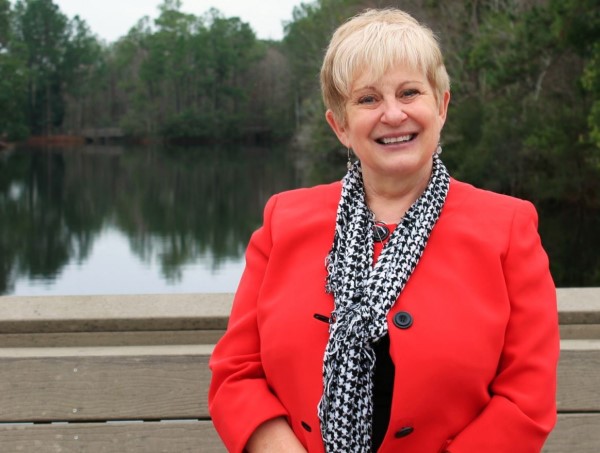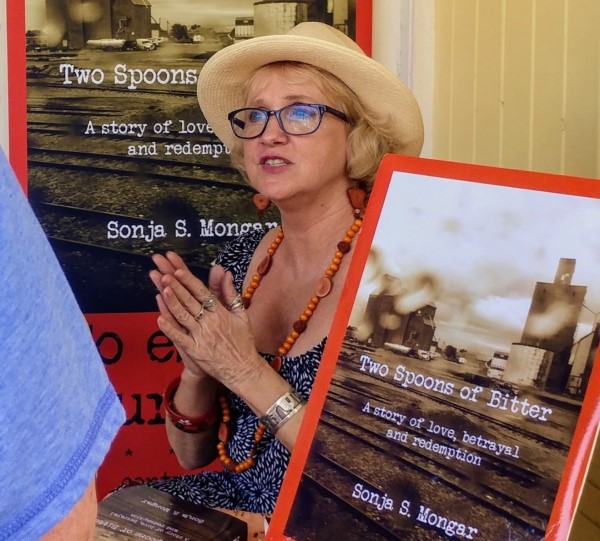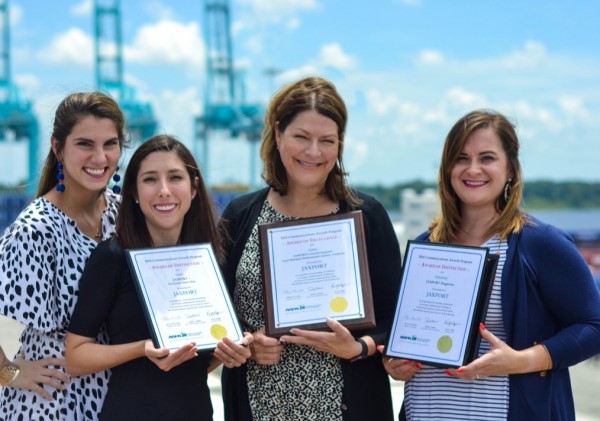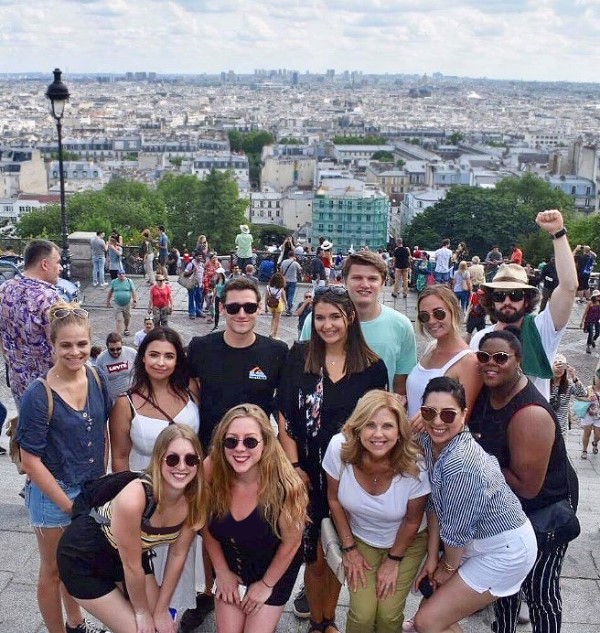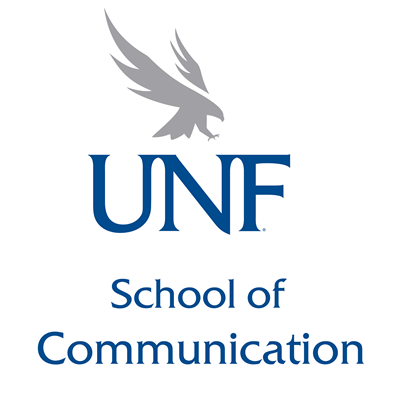6th annual Media Week event features premier of Uncovering Jax
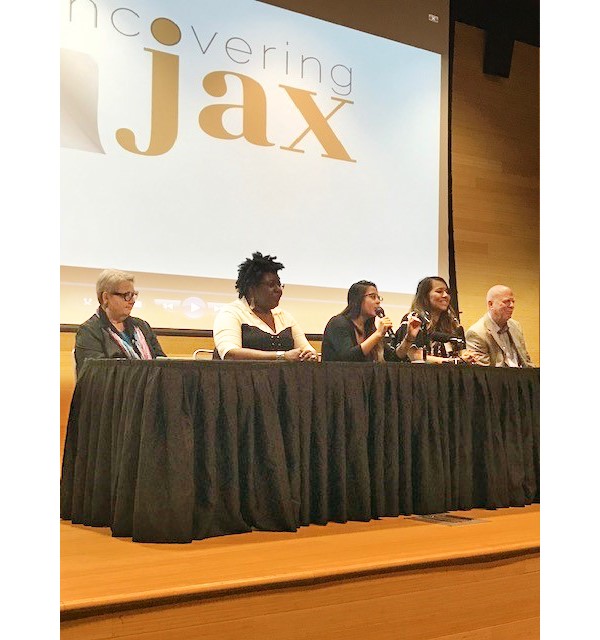
Panelists Rita Regan, executive director of Norman Studios; Adonnica Toler, museum administrator of the Ritz Museum; UNF production students Chelsea Rafan and Kendall Russ; and Mike Clark, editorial page editor for The Florida Times-Union, answer questions from the attendees at the premier of Uncovering Jax.
The Department of Communications’ Media Week 2018 opened on Oct. 22 with the screening of Uncovering Jax, a new initiative designed to educate the community about its rich and diverse cultural history. About 125 people filled the student union theater where various student video documentaries took center stage to tell the historical stories of Jacksonville. These stories included those on Richard E. Norman, founder of Norman Studios, which produced silent films with an all African-American cast; Joseph H. Blodgett, an African-American architect, who was instrumental in building around 250 homes and was one of the wealthiest black men in Jacksonville; and Asa Philip Randolph, a strong civil rights activist. Other stories included those of Ana Kingsley of Kingsley Plantation and the Old Brooklyn neighborhood of Jacksonville.
This premier screening of student documentaries was the culmination of the efforts of several faculty members, including Dr. Paula Horvath, professor Frank Goodin, Dr. Nataliya Roman and professor Dee Colvin, dating back to the spring 2018 semester.
Immediately after the documentary viewings, a panel discussion took place with former students who worked on the project, and key black historians and leaders who helped guide the student projects, as well as a representative from The Florida Times-Union who partnered in the project.
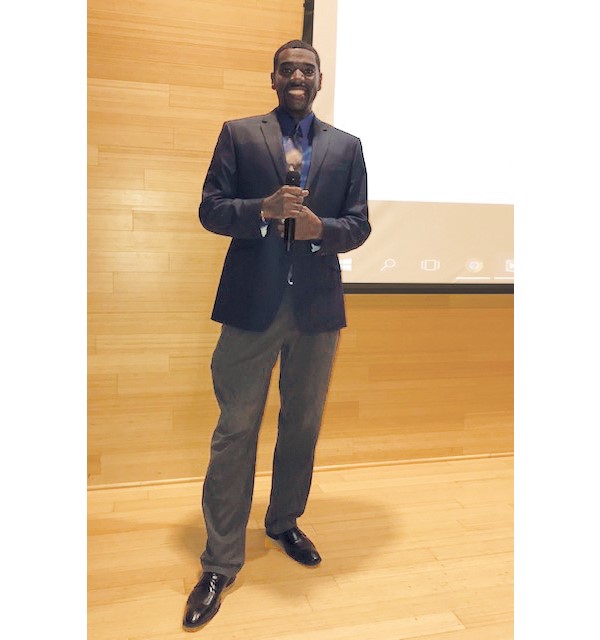 Professor Frank Goodin, UNF multimedia production instructor, introduces the premier of Uncovering Jax.
Professor Frank Goodin, UNF multimedia production instructor, introduces the premier of Uncovering Jax.
Many attendees of the event expressed appreciation for having been exposed to these local historical people and events that they never knew existed.
"As I kept researching the project and visiting the (Kingsley) Plantation, it went from an assigned project to almost like a passion project," said Kendall Russ, a recent production graduate who worked on the project. "I just wanted to learn more and more about it. It was a really cool experience."
A social media campaign also coincided with the premier. Roman was instrumental in gaining more than 22,000 unique views over a 22-day plan on the communication department’s social media channels.
So what’s next for the future of the project?
"We will continue this initiative and expand it to include all cultural minorities and women," Goodin said. "We are currently working closer with MOSH and have plans to work with the UNF Department of History."
For more information, please visit www.uncoveringjax.com.

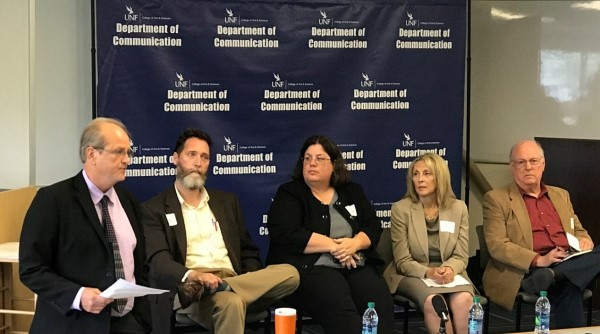 “A country can’t be free with the press in chains,” said Dr. Brian Thornton, moderator of the “Enemy of the People” panel. The journalists included (left to right) Thornton; Timothy Gibbons, editor, Jacksonville Business Journal; Mary Kelli Palka, editor, The Florida Times-Union; Robbie Gordon, VP Investigative Media Group Inc; and Mike Miller, retired broadcaster.
“A country can’t be free with the press in chains,” said Dr. Brian Thornton, moderator of the “Enemy of the People” panel. The journalists included (left to right) Thornton; Timothy Gibbons, editor, Jacksonville Business Journal; Mary Kelli Palka, editor, The Florida Times-Union; Robbie Gordon, VP Investigative Media Group Inc; and Mike Miller, retired broadcaster.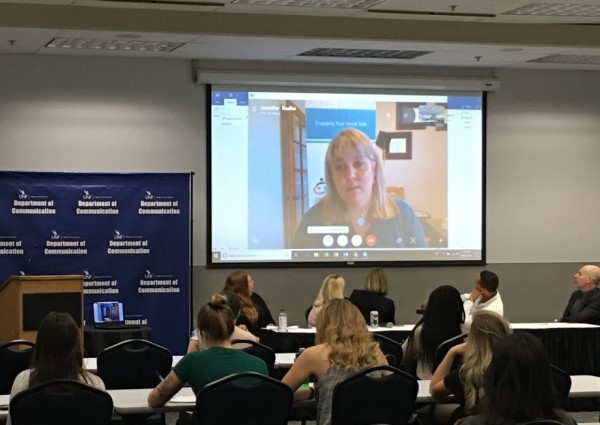
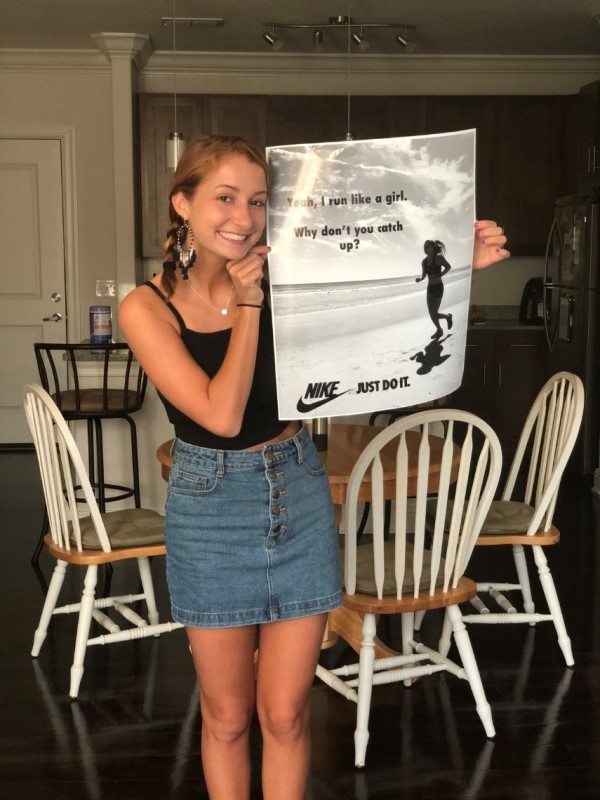 Emily Tomasello proudly displays her winning ad for the Creative Advertising Competition.
Emily Tomasello proudly displays her winning ad for the Creative Advertising Competition.